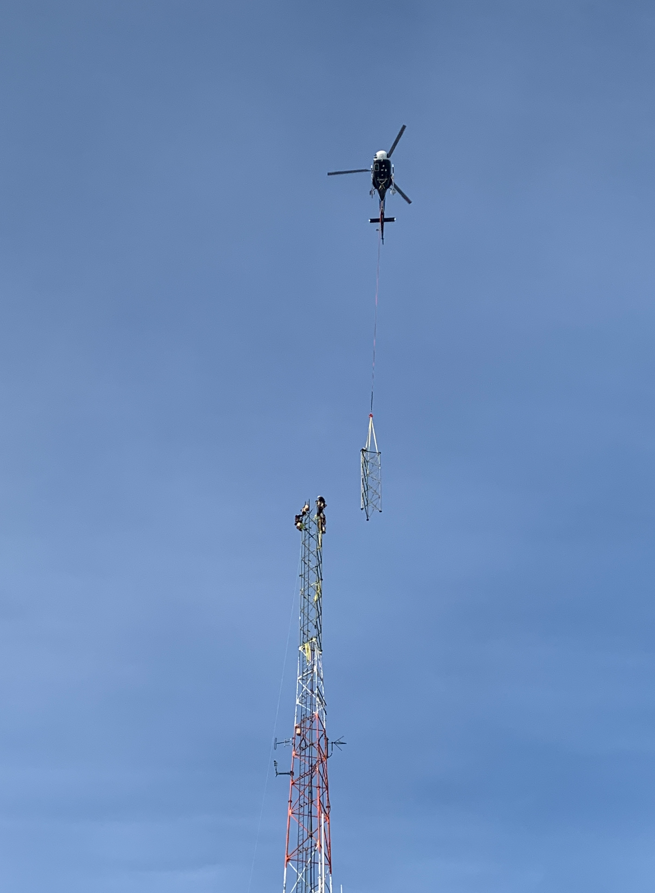The tower supporting KYUK’s FM signal recently got a lot shorter.
KYUK serves rural Alaska and Alaska Native communities with AM, FM and low-power TV signals.

At the end of October, a helicopter removed the top 80 feet of the 260-foot tower, which has stood behind the station in Bethel, Alaska, for nearly 50 years. The structure — which dates to 1973 — is owned by KYUK and helps the public station serve approximately 13,500 predominantly Yup’ik/Alaska Native residents in Southwestern Alaska.
Serving the public in the coldest state in the country, however, presents its own set of challenges. One of them: Maintaining a radio tower in a more-than-difficult climate.
“The 260-foot tower was bent on all three legs at 180 feet,” said Shane Iverson, general manager at KYUK. “We discovered the bend in April. It was likely caused by icing and high winds. Storms in our area have become icier and more regular.”
The tower holds both the FM and the TV antenna. Both had to be lowered 80 feet to sit below the damaged section, since removed.
KYUK said the shortening of the tower will likely weaken its FM and TV signals at the fringes of its broadcast map. The station’s AM signal, however, will not be affected.
Iverson said the station’s plan is to either replace the 80 feet of tower that was removed or “hopefully replace the entire tower and foundation. That will depend on our insurance,” he said.
KYUK 640 AM has been on the air since 1971, with 90.3 FM joining in as a second service in 2009 — serving Bethel and six nearby villages with a 1 kW low-power analog transmitter.
Additionally, KYUK partners with local tribes, village corporations and schools to serve another 9,500 people through village-based, FM repeaters. According to its website, these repeaters provide the only radio signal available in most of these communities.
[Related: “For Decades, Lonewolf Has Supported “The Voice of the Arctic”]







